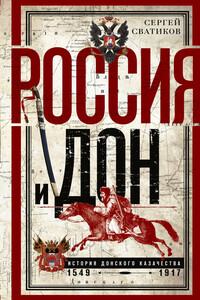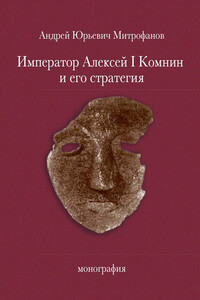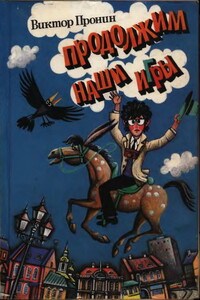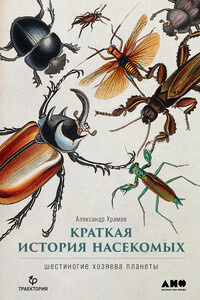Английский язык для специальных и академических целей: Международные отношения и зарубежное регионоведение. Часть 1 - [82]
There is a fourth scenario: simple diplomatic miscalculation. A year ago, at a summit where they agreed on a fiscal compact, almost all other EU leaders banded together to sidestep a British veto. If that were to happen again on an issue that Britons care more deeply about, Mr Cameron may face irresistible pressure to call an early referendum.
The early signs are that Britons would opt to push off. YouGov's latest poll on the issue suggests that 49% would vote to leave, whereas only 32% would choose to stay (the rest are unsure). One senior Tory, who wants Britain to stay in, says blankly that it would be impossible to win a referendum at the moment.
The leaders of all three main parties, backed by business and trade unions, could try to woo Britons to Europe. But they would have plenty of opposition, and not just from other MPs. When Britain last voted on Europe, in 1975, every national newspaper except the Morning Star campaigned for an “In” vote. That will not be repeated. Britain's two biggest-selling dailies, the Daily Mail and the Sun — combined circulation, 4.5m — are deeply Eurosceptic.
The Reader
What would make the vote unpredictable is that Britons cannot have what they really want. If offered a “detached relationship that is little more than a free-trade agreement”, according to the same YouGov poll, only 26% would still opt for the exit. The biggest group of respondents, 46%, would accept those looser terms. But continental leaders are unwilling to grant Britain full access to the single market without the costly bits. Germany's chancellor, Angela Merkel, says she dearly wants to keep Britain in the EU — but “as a good partner”. In the run-up to a promised referendum, Mr Cameron could win only trifling concessions. That might convince some Britons that life outside the EU would be difficult; but it might equally inflame Eurosceptic opinion and make an “out” vote more likely.
If Britain walked away entirely — the most extreme scenario — it would quickly see some benefits. The country would no longer have to transfer funds to the EU to subsidise farm incomes or poorer regions. Treasury figures suggest it would be £8 billion ($13 billion) better off each year. Food could become cheaper. Under WTO rules, countries may slash import barriers unilaterally as long as they do not favour some countries over others. Britain could do this for agricultural produce. It would regain control over fishing rights around its coast.
Some irksome regulations could be ditched, too. First to go (if the Tories are in power when Britain leaves) would be the working-time directive. This limits how long people can be at work without a break or a holiday and caps the working week at 48 hours. The scrapping of the EU's agency-worker directive, which gives temporary staff the same rights as regular employees, would be cheered by business, too. Britain would be free to set itself a less exacting target for green-power generation than it is bound to under the EU's renewable-energy directive. That could mean cheaper power.
London's financial district would look to past glories. It thrived as an offshore centre for deposit-taking and loan-making in dollars long before Britain joined the EU. Outside the club, it would be freer to market itself as a freewheeling hub for emerging-market finance — a sort of Singapore on steroids. Free of the obligation to abide by ever-changing EU rules on alternative investments, hedge funds that have left London might be lured back. The burden of impending European Solvency 2 regulations on the insurance industry would become less onerous.
Yet a bonfire of regulations would smoulder rather than blaze. Domestic and global commitments to greenery constrain Britain's energy policy, for example. And EU regulations bite less hard than is commonly supposed. Britain already has one of the most flexible labour markets in the rich world (employees can opt out of the 48-hour week). This helps to explain why the unemployment rate is as low as in America or Canada, despite a more sluggish economy.
Product regulations would be harder to junk than labour laws. The British suppliers to Airbus, the Franco-German aircraft manufacturer, have to comply with exacting standards. But these exist not because of meddling by Brussels, but to ensure aircraft are safe. Similarly, a minimum standard of food safety stops a race to the bottom by competing firms. British ones would still have to observe Europe's product regulations in order to export there. A separate set of regulations tailored for the home market would only add to red tape.
That goes for the City, too. Global finance favours common standards, such as the Basel accords on bank capital. And, far from racing to the bottom, countries with large financial sectors are now as likely to create even tougher rules. The Bank of England has hinted that Basel is not strong enough.
And some immediate gains would evaporate as special-interest groups redirected their attention from Brussels to Westminster. British farmers would lose £2.7 billion in EU subsidies once Britain left. They are a noisy lobby group, and it is unlikely that the government would hang on to all that cash. The farming lobby would also try to stand in the way of lowering tariffs on food imported from beyond Europe, potentially depriving the government of a bargaining chip in trade negotiations with big emerging markets such as Brazil and India.

Предлагаем вашему вниманию адаптированную на современный язык уникальную монографию российского историка Сергея Григорьевича Сватикова. Книга посвящена донскому казачеству и является интересным исследованием гражданской и социально-политической истории Дона. В работе было использовано издание 1924 года, выпущенное Донской Исторической комиссией. Сватиков изучил колоссальное количество монографий, общих трудов, статей и различных материалов, которые до него в отношении Дона не были проработаны. История казачества представляет громадный интерес как ценный опыт разрешения самим народом вековых задач построения жизни на началах свободы и равенства.

Монография доктора исторических наук Андрея Юрьевича Митрофанова рассматривает военно-политическую обстановку, сложившуюся вокруг византийской империи накануне захвата власти Алексеем Комнином в 1081 году, и исследует основные военные кампании этого императора, тактику и вооружение его армии. выводы относительно характера военно-политической стратегии Алексея Комнина автор делает, опираясь на известный памятник византийской исторической литературы – «Алексиаду» Анны Комниной, а также «Анналы» Иоанна Зонары, «Стратегикон» Катакалона Кекавмена, латинские и сельджукские исторические сочинения. В работе приводятся новые доказательства монгольского происхождения династии великих Сельджукидов и новые аргументы в пользу радикального изменения тактики варяжской гвардии в эпоху Алексея Комнина, рассматриваются процессы вестернизации византийской армии накануне Первого Крестового похода.

Виктор Пронин пишет о героях, которые решают острые нравственные проблемы. В конфликтных ситуациях им приходится делать выбор между добром и злом, отстаивать свои убеждения или изменять им — тогда человек неизбежно теряет многое.

«Любая история, в том числе история развития жизни на Земле, – это замысловатое переплетение причин и следствий. Убери что-то одно, и все остальное изменится до неузнаваемости» – с этих слов и знаменитого примера с бабочкой из рассказа Рэя Брэдбери палеоэнтомолог Александр Храмов начинает свой удивительный рассказ о шестиногих хозяевах планеты. Мы отмахиваемся от мух и комаров, сражаемся с тараканами, обходим стороной муравейники, что уж говорить о вшах! Только не будь вшей, человек остался бы волосатым, как шимпанзе.

Настоящая монография посвящена изучению системы исторического образования и исторической науки в рамках сибирского научно-образовательного комплекса второй половины 1920-х – первой половины 1950-х гг. Период сталинизма в истории нашей страны характеризуется определенной дихотомией. С одной стороны, это время диктатуры коммунистической партии во всех сферах жизни советского общества, политических репрессий и идеологических кампаний. С другой стороны, именно в эти годы были заложены базовые институциональные основы развития исторического образования, исторической науки, принципов взаимоотношения исторического сообщества с государством, которые определили это развитие на десятилетия вперед, в том числе сохранившись во многих чертах и до сегодняшнего времени.

Эксперты пророчат, что следующие 50 лет будут определяться взаимоотношениями людей и технологий. Грядущие изобретения, несомненно, изменят нашу жизнь, вопрос состоит в том, до какой степени? Чего мы ждем от новых технологий и что хотим получить с их помощью? Как они изменят сферу медиа, экономику, здравоохранение, образование и нашу повседневную жизнь в целом? Ричард Уотсон призывает задуматься о современном обществе и представить, какой мир мы хотим создать в будущем. Он доступно и интересно исследует возможное влияние технологий на все сферы нашей жизни.